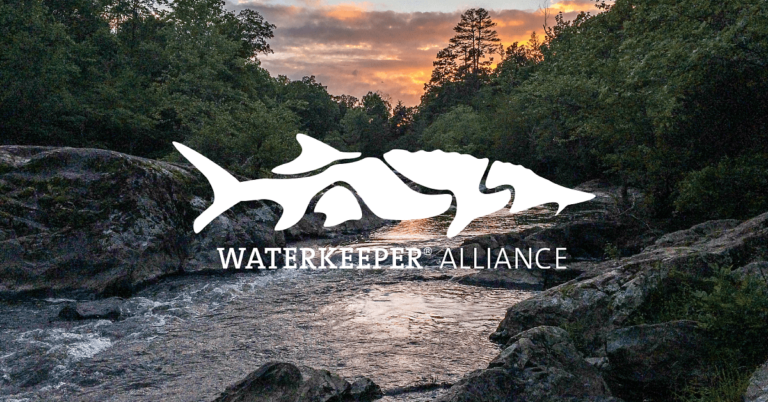Relentless in the Pursuit of Poisoning our Waterways | Dive Into Democracy
By: Larissa Liebmann

Nearly a decade ago, Waterkeeper Alliance and our partners won an important legal victory that helps keep pesticides from poisoning our waterways. In National Cotton Council v. EPA, the U.S. Court of Appeals for the Sixth Circuit found that the U.S. Environmental Protection Agency (EPA) erred when it issued a rule exempting pesticides applied in accordance with the Federal Insecticide, Fungicide, and Rodenticide Act (FIFRA) from the Clean Water Act’s permitting requirements. This ruling meant that Clean Water Act permits are legally required before pesticides are sprayed over and into waterways. Since pesticides are poisons designed to kill living organisms and many have known human health impacts, it makes sense that they should be treated as pollutants that need to be regulated under the Clean Water Act.
Our 2009 legal victory means that anyone who sprays pesticides into waterways is required to track and report what they are doing — keeping companies and others who use pesticides accountable and helping communities stay informed of the poisons being released in their waterways and communities. The chemical industry sees this simple permit requirement as an impediment to the use — and therefore the sale — of pesticides. Ever since our legal victory, the industry has been heavily lobbying Congress to create a legislative exemption allowing unimpeded and unpermitted releases of pesticides into waterways.
There are currently three independent attempts by members of Congress to do industry’s bidding and have this exemption passed into law. One is a standalone bill that already passed the House of Representatives and is now being considered by the Senate (S. 340), and another is a provision in the ACRE Act. Now, the provision has been snuck in as a rider to the House of Representatives’ 2018 Farm Bill (H.R. 2), titled the “Agriculture and Nutrition Act of 2018.” This rider serves a singular purpose — to help the chemical industry maximize sales by allowing pesticide applicators to avoid legal responsibility for releasing pesticides into our waterways.
Dive into Democracy readers may recall that we recently had one of our legal victories erased by a last-minute polluter-sponsored rider, and we need your help to prevent this from happening again! The House of Representatives could vote on the 2018 Farm Bill as soon as this week, so we are asking you to call your Representatives as soon as possible. Please let them know that you do not want the pesticides industry free to poison our waterways by saying:
- My name is [YOUR NAME] and I am a resident of ZIP code [ZIP CODE].
- I am calling to express my concerns about a rider to the House 2018 Farm Bill.
- Section 9118 of the bill, titled “Discharges of Pesticides,” would amend the Clean Water Act to allow unregulated discharges of pesticides into our nation’s waterways.
- This rider would also prevent states from making their own rules to protect waterways from pesticides.
- Requiring Clean Water Act permitting for pesticides being released into waterways is important because it protects our waterways from unnecessary chemical pollution, helps track releases of pesticides into waterways, and keeps the public informed.
- Section 9118 of the Farm Bill would increase the chances of our waterways being poisoned by pesticides, which are widely known to be a threat to human health.
- I am asking you to stand up for public health, our rivers, and the environment and oppose this rider.
- Please also oppose any other legislative attempts to exempt releases of pesticides to waterways from Clean Water Act permit requirements.
Want to do more? Also call your Senators and ask them to oppose Senate bill number 340, as well as any efforts to insert similar riders into the Senate Farm Bill.
[CongressLookup]
Dive Into Democracy is Waterkeeper Alliance’s weekly roundup of current attacks on America’s clean water protections and how to take action. Want to get them in your email? Sign up here.